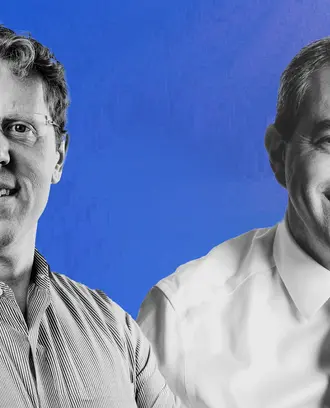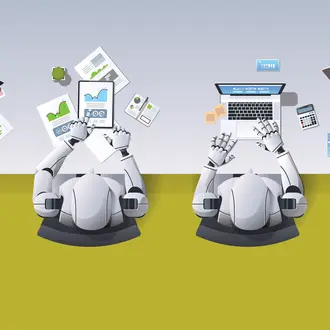Artificial Intelligence
4 ways to use AI to improve lives, from MIT researchers
MIT Sloan faculty members are applying AI research to tackle complex and important challenges, from creating fairer organ transplant policies to addressing asylum system backlogs.
Artificial intelligence isn’t just for writing emails. It’s also a powerful tool to address some of society’s most urgent and complex problems.
At the 2025 MIT Ethics of Computing Research Symposium, researchers from across MIT, including several from MIT Sloan, explored how AI can be used for the public good — from improving organ transplant access to reducing backlogs in the asylum process.
Here are four ways MIT experts are studying the responsible application of AI in service of social welfare.
Creating more equitable organ transplant policies
For patients awaiting an organ transplant, time isn’t just precious; it’s a matter of life or death. But today’s policy-setting processes for allocating organs are slow and often siloed across regions, making it difficult to adapt them in real time or assess the long-term effects of a change, said MIT Sloan professor and associate dean
To accelerate this process, Bertsimas and his team developed a simulation algorithm that can evaluate new organ allocation policies roughly 1,000 times faster than existing methods. By using this simulation, policymakers can better understand how proposed changes — like merging waiting lists across geographies — could impact wait times and mortality. The team has also built a website to explore the effects of different policies, aiming to bring more transparency and speed to a historically sluggish process.
Watch: Analytics for fair and efficient kidney transplant allocation
Identifying where novel transplant technologies can make the biggest difference
The future of organ transplantation may include emerging technologies like xenotransplantation (using animal organs) and organ cryopreservation (freezing organs for later use) that could significantly expand the donor pool. But even if the science works, logistics still matter: It’s important to know where and when these technologies should be deployed to have the greatest impact.
MIT Sloan associate professor is using AI to model the supply-and-demand dynamics of organ transplantation to identify the geographic and demographic gaps where these innovations could help the most. For example, if a region regularly has higher organ discard rates due to timing mismatches between donors and recipients, cryopreservation might be especially valuable there.
Watch: Towards equitable and efficient organ transplantation through longer preservation times
Preserving diversity in algorithmic decision-making
Algorithms should help us make faster, more objective decisions. But what happens when everyone’s algorithm starts making the same decision? According to MIT Sloan assistant professor information-sharing across AI systems can inadvertently reduce diversity, making entire markets — and societies — more fragile.
Take resume screening as an example. If multiple employers use similar AI models trained on the same data, they might reject the same candidates, even if those candidates may have stood out to individual human recruiters. The same is true with rent-setting software: If every landlord uses the same tool, rents across a city may rise in lockstep. Raghavan’s work investigates how algorithmic uniformity can lead to collusion-like outcomes, and how policymakers and technologists can design for diversity — not just accuracy — in automated systems.
Watch: information sharing, competition, and collusion via algorithms
Fixing the broken asylum scheduling system
The U.S. asylum process has long been criticized for inefficiency, inconsistency, and lengthy delays. And while much of the public debate focuses on policy, MIT Sloan assistant professor is asking a different question: Can better scheduling make the system more humane?
Freund’s work applies operations research and AI to the U.S. asylum adjudication process, where the number of applications far outpaces the number of decisions made. Traditional queuing systems like “first in, first out” don’t always make sense, he said; some applicants benefit from delays because they can work during the wait, while others face serious hardship from prolonged limbo. Freund’s research highlights how algorithmic scheduling can reduce backlogs, allocate resources more efficiently, and minimize harm to vulnerable populations.
Watch: The fairness-efficiency frontier in humanitarian immigration
Dimitris Bertsimas is a professor of operations research, the associate dean for business analytics, and vice provost for open learning. His research interests include optimization, machine learning, and applied probability. Swati Gupta is an associate professor of operations research and statistics. Her research focuses on deep theoretical challenges in optimization and AI. Manish Raghavan is an assistant professor of information technology. His research studies the impacts of computational tools on society. Daniel Freund is an associate professor of operations management. His research applies optimization, stochastic modeling, and revenue management techniques to problems in transportation, online platforms, and humanitarian immigration.




